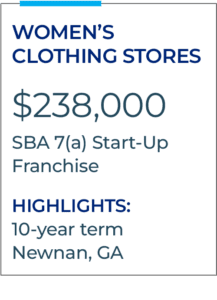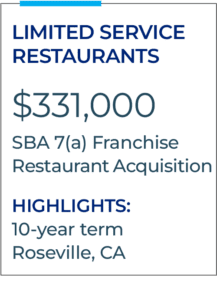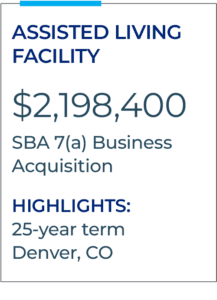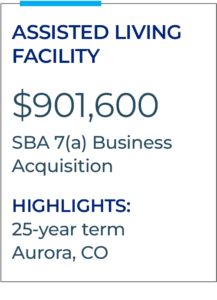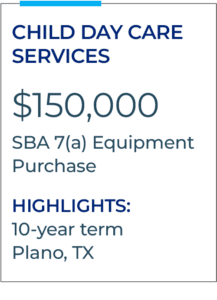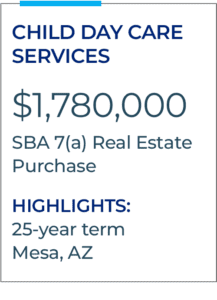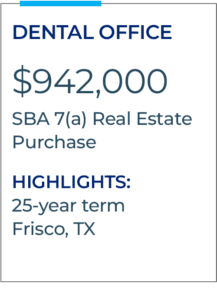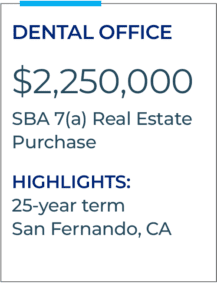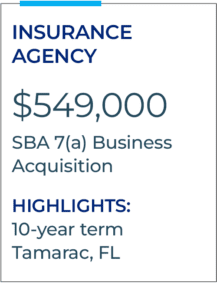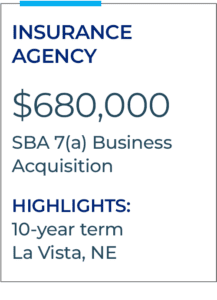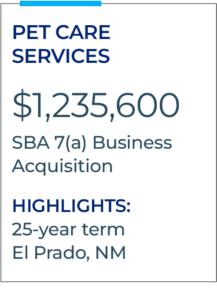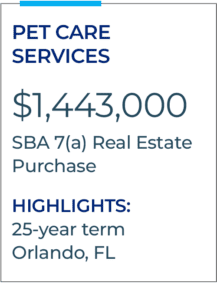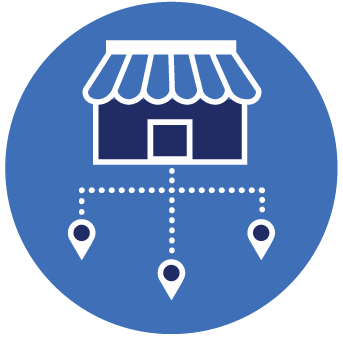
SBA 7(a) Loans for Franchises
SBA loans to grow franchise portfolios
Experience Ready Capital’s commitment to franchise business owners and investors. We close SBA 7(a) deals that other lenders can’t, working with a range of credit scores and financing challenges.
Starting or buying a franchise gives entrepreneurs a jump start in owning a business.
With lenders tightening credit and pausing certain transactions, SBA 7(a) loans are a viable option for new and existing franchises. And they offer higher allowable leverage and wider parameters than a typical conventional loan — a good fit to grow and expand franchise portfolios.
Franchise financing highlights
- Loans to $5 million
- Terms up to 25 years
- Low borrower equity required
- Wide use of loan proceeds
- Limited or no prepayment penalties
- Closing costs may be financed
Loan terms vary by loan program, borrower eligibility, loan amount, and other factors.
Franchise loan purposes
- Start-ups
- Business acquisitions and expansions
- Working capital
- Equipment
- Renovations and rebranding
- CRE purchase and rent replacement
MARKET FACTS
Source: 2024 Economic Impact Report, FRANdata.

Have a question about Franchise SBA 7(a) Loans?
FAQs
What is franchise lending?
Answer: Franchise lending is a type of financing specifically designed for individuals or entities looking to buy and operate a franchise. It involves loans to cover the costs associated with starting and running a franchise business.
What types of financing options are available for franchises?
Answer: There are several franchise business lending options, including traditional bank loans, SBA 7(a) loans, franchise-specific loans, equipment financing, and lines of credit. The choice of financing depends on the franchisee’s needs and financial situation.
What is an SBA loan, and what are the key benefits for franchises?
Answer: An SBA loan is a type of loan backed by the Small Business Administration that helps small businesses, including franchises, get the financing they need.
The benefits of SBA loans for franchises include:
- Lower down payments (typically 10%)
- Longer repayment terms (up to 25 years)
- Competitive interest rates
- Flexible use of funds
- Access to expert guidance and resources from the SBA
Learn more about how SBA loans work.
What can franchise financing be used for?
Answer: Franchise financing can typically be used to cover startup costs, business acquisitions and expansions, equipment, renovations and rebranding, and working capital. It can also be used to purchase existing franchise locations.
Do I need to have prior business experience to qualify for franchise lending?
Answer: While prior business experience can be beneficial, it’s not always a strict requirement.
What are the SBA requirements for franchise loans?
Answer: SBA loan requirements can vary, but in general, lenders consider these factors:
- Personal and business financial statements
- A comprehensive business plan
- Financial projections
- Franchise brand’s track record
- Franchise agreement and documentation
- Resumes of key team members
- Personal credit history and scores
- Collateral
What collateral might be required for a financing a franchise?
Answer: Collateral requirements vary from lender to lender. Common types of collateral may include personal assets like real estate, equipment, or business assets. The specific collateral requirements will be outlined in the loan agreement.
How long does it take to get approved for an SBA loan for my franchise?
Answer: The approval timeline can vary but typically takes anywhere from a few weeks to a few months. Delays may occur if additional documentation or information is required, so it’s essential to start the application process early.
What should I look for in a franchise lender?
Answer: When exploring franchise lenders, consider their experience, available financing options, and their track record of successful franchise lending.
SBA Preferred Lenders are experienced in aligning borrowers with their business goals and guiding them through the SBA application process.

Get Started
Apply for a Ready Capital SBA 7(a) loan
Click the button to start the application process. It takes less than 3 minutes and will not affect your credit score.

